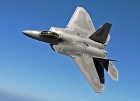Mgellis
Posts: 2054
Joined: 8/18/2007
Status: offline

|
You guys got me thinking about various ways to approach this and I came up with a sort of generic template for an escalating proxy war...
At level one, two smaller countries (or two sides in a civil war) are fighting. Each side is being supplied by a major or global power. This might be just one scenario or it could be several.
At level two, a major power (or superpower) steps in on behalf of its client/ally in the region and attacks one of the smaller countries (or sides), the enemy of its client state/ally in the region. Its counterpart, the other side's patron, may do the same (i.e., Big A attacks Little B, and then Big B attacks Little A). Again, this may be one scenario or several. A variation on this would be if the major power (Big A) is trying to supply its client (Little A), and its enemy (Little B) attacks the convoy, etc. At this level, major powers are fighting, but fighting respective client states rather than each other (e.g., U.S. in Vietnam).
At level three, the same thing happens, but this time, the opposing major power intervenes (i.e., Big A attacks Little B, but Big B tries to stop the attack). Now we have escalated to the point where the forces of two major powers are openly fighting each other, although only in a regional conflict (e.g., Korea), not in an all-out war.
At level four, one of the major powers tries to take the fight directly to its counterpart and knock them out of the region. An example would be a Middle East war, where the Soviets have been supporting Syria, and the U.S. is supporting Israel, and the U.S. decides to simply sink the Soviet battle group in the Mediterranean and thus cripple Syria once and for all. This is meant to be a decisive battle that will clearly establish who has influence in this part of the world. Depending on how much the major powers have invested in the region, this could be one scenario or several. This could escalate to a global war, but this template assumes that once someone is a clear winner at this level, the major powers step back, take a breath, and start negotiations rather than continuing to fight.
What do you guys think? Does this make sense? Am I missing anything?
|
 Printable Version
Printable Version







 New Messages
New Messages No New Messages
No New Messages Hot Topic w/ New Messages
Hot Topic w/ New Messages Hot Topic w/o New Messages
Hot Topic w/o New Messages Locked w/ New Messages
Locked w/ New Messages Locked w/o New Messages
Locked w/o New Messages Post New Thread
Post New Thread